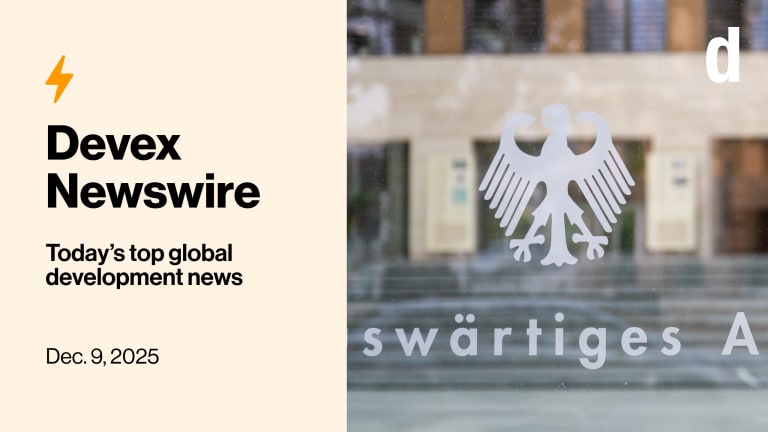
NEW YORK — The United States, the United Kingdom, and Qatar will announce new funding for the humanitarian crisis in Yemen on Friday during a high-level meeting at the United Nations General Assembly on the situation, the U.N. special envoy for humanitarian affairs told Devex.
The U.N. is requesting about $2.1 billion to provide urgent aid to 12 million Yemenis, Special Envoy Ahmed Al-Meraikhi said, describing the plight of civilians as “desperate.” The appeal is about 45 percent funded. In addition to facing near famine conditions, the country is experiencing the world’s fastest-growing cholera epidemic. Roughly 700,000 cases have been reported in the six months, the World Health Organization announced this week.
Aid for Yemen faces a complex set of challenges, and donors to the crisis met in their third coordination meeting on Monday at the U.N. Political leaders from major countries will meet on Friday at the U.N.
“The access issue is the most crucial one, especially with the port” of Houdeidah, the country’s largest operational port, said Al-Meraikhi. A military coalition led by Saudi Arabia inspect at sea all shipments that pass through the port, which is controlled by Houthi rebels. Despite some progress, the arrangement can lead to delays and cargo occasionally turned around. “Most of the donors have this concern about how can we get [aid] in.”
The coordination group was formed to improve coordination among donors, based on the experience of the crisis in Syria where Western and Gulf donors didn’t initially align efforts in many cases.
Saudi Arabia’s newly formed aid agency, the King Salman Center for Relief and Humanitarian Aid, is the second largest donor to the humanitarian crisis in Yemen, after the United States. In an effort to promote better coordination, the U.N. has an office in the center headquarters, Al-Meraikhi said.
Al-Meraikhi told Devex that donors from the Gulf have continued to cooperate on humanitarian matters, despite an ongoing political dispute between Saudi Arabia, the United Arab Emirates, Egypt, and others on one side, and Qatar on the other.
“The political issues are always there and always there is a kind of disagreement, but on humanitarian [issues], everyone is agreed,” he said.
Devex is on the ground in New York at Global Goals Week, bringing you daily morning briefings with everything you need to know — whether you're here in person or following the events from afar. Sign up for our daily briefings.








